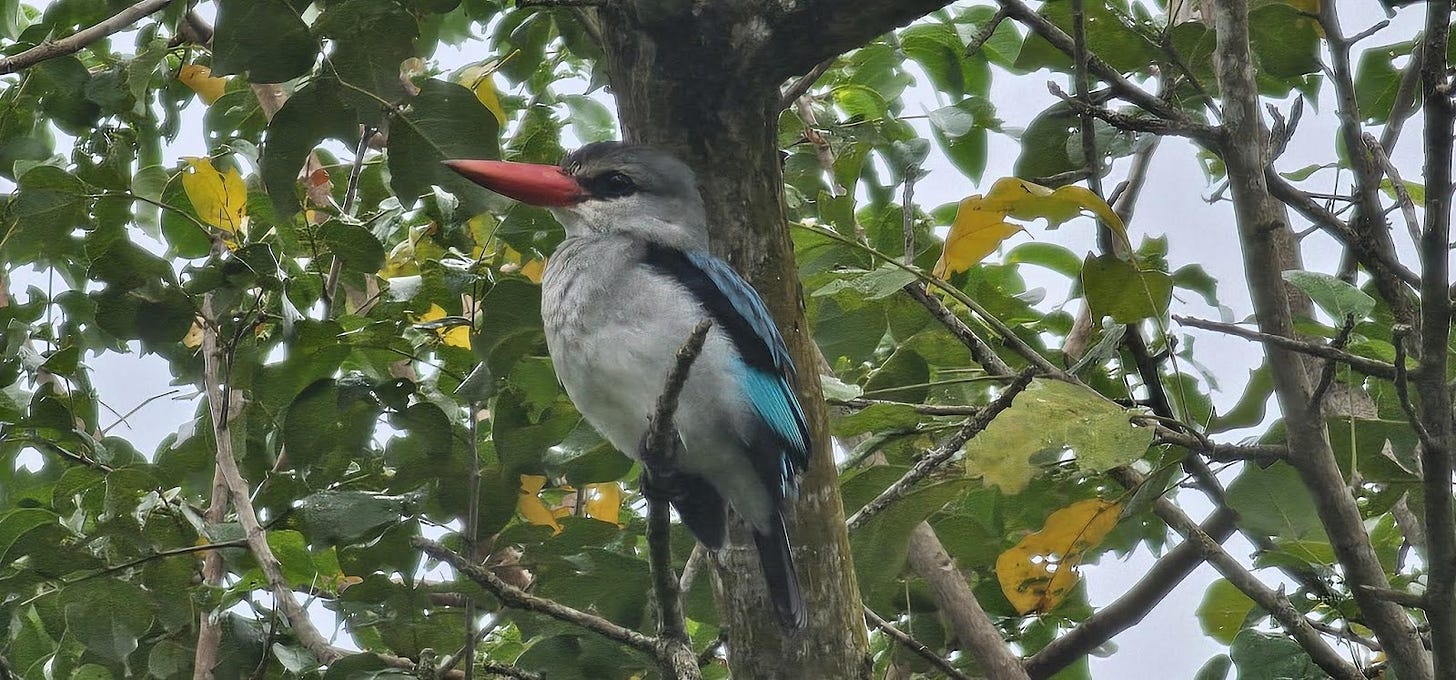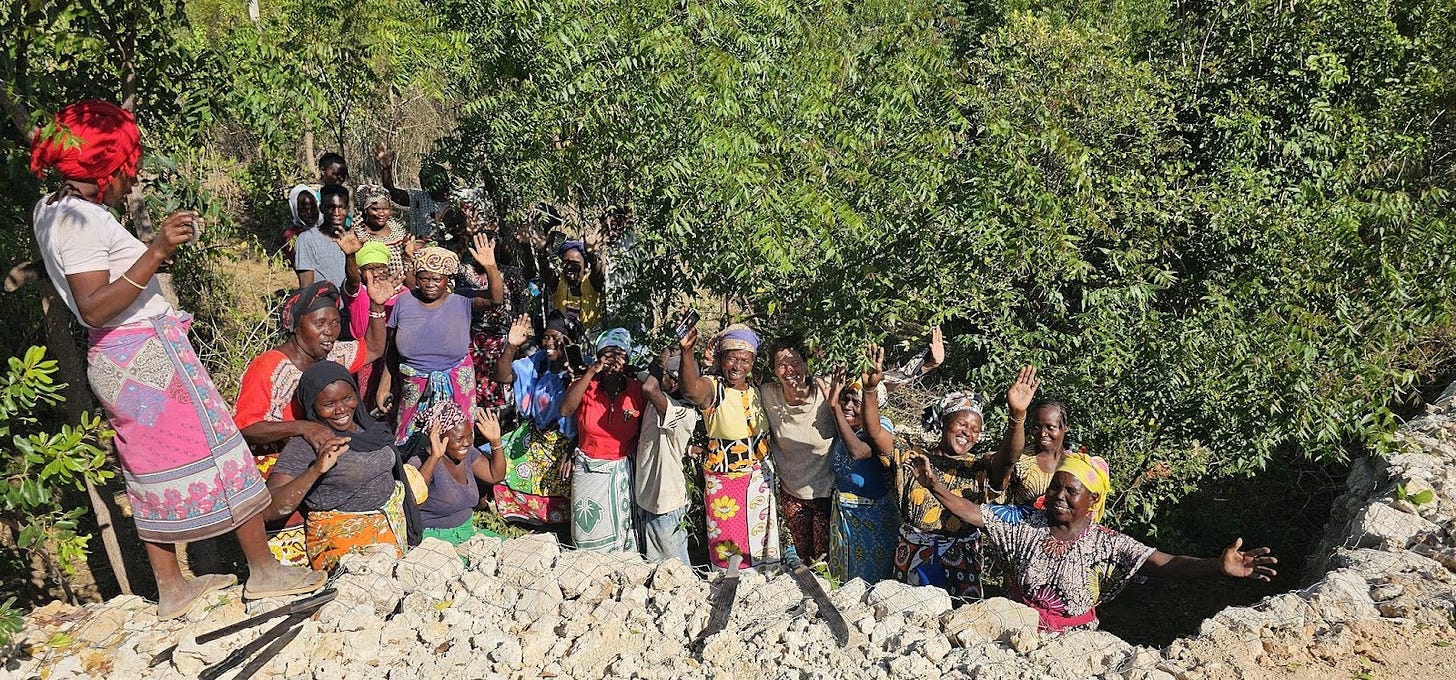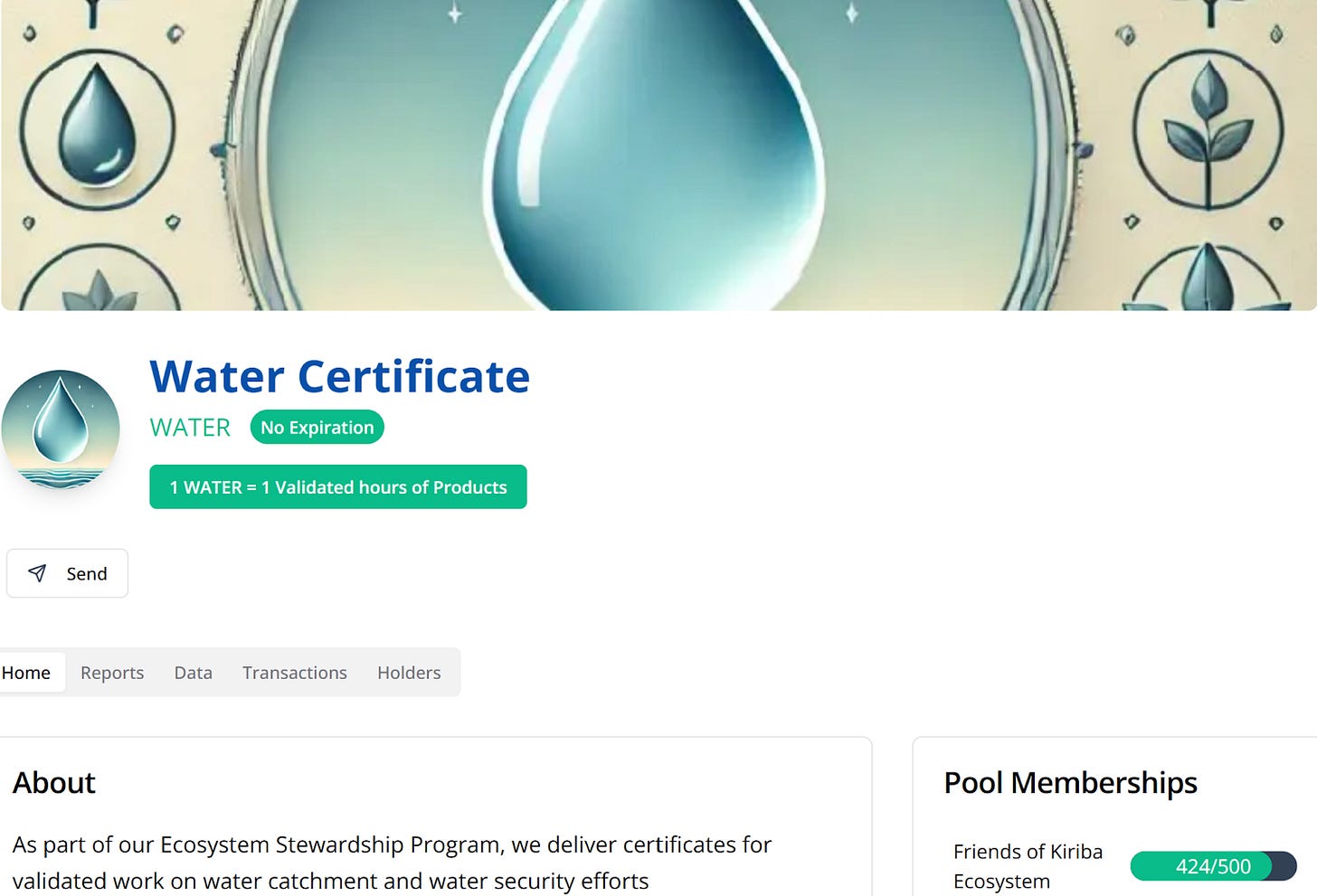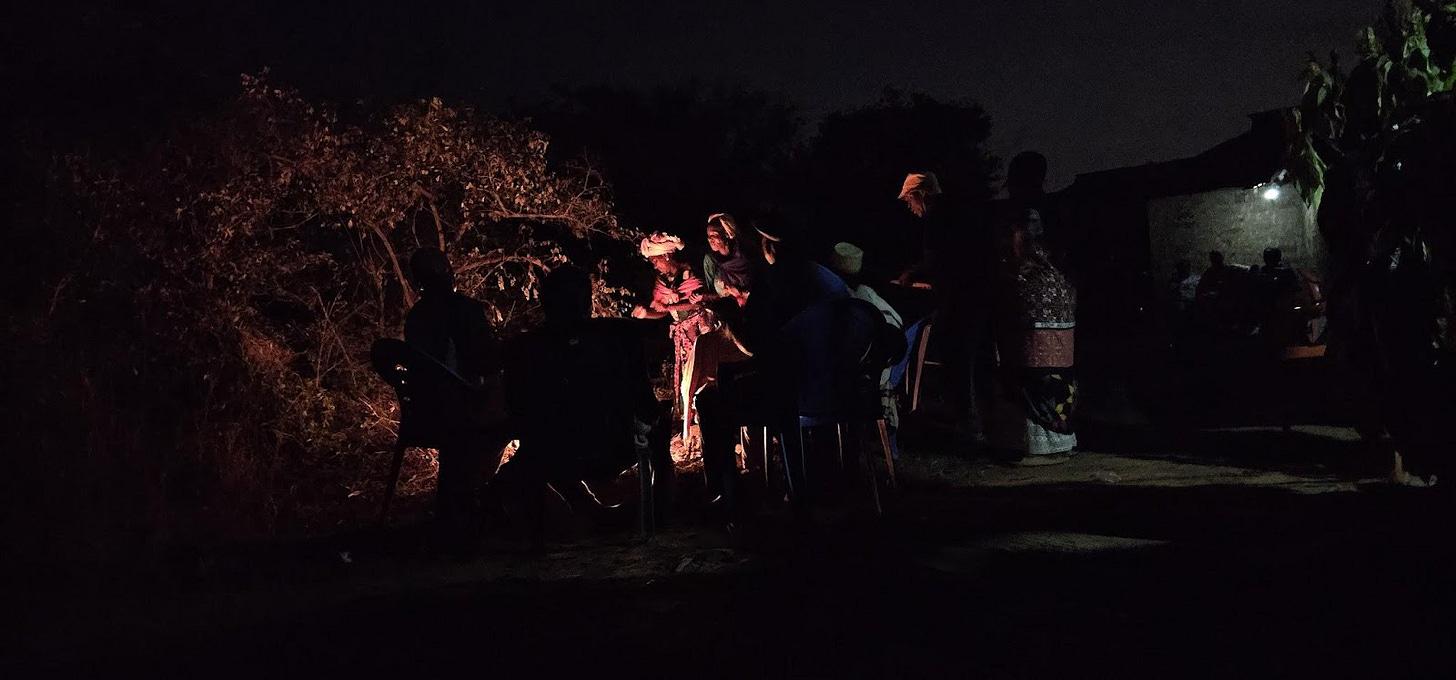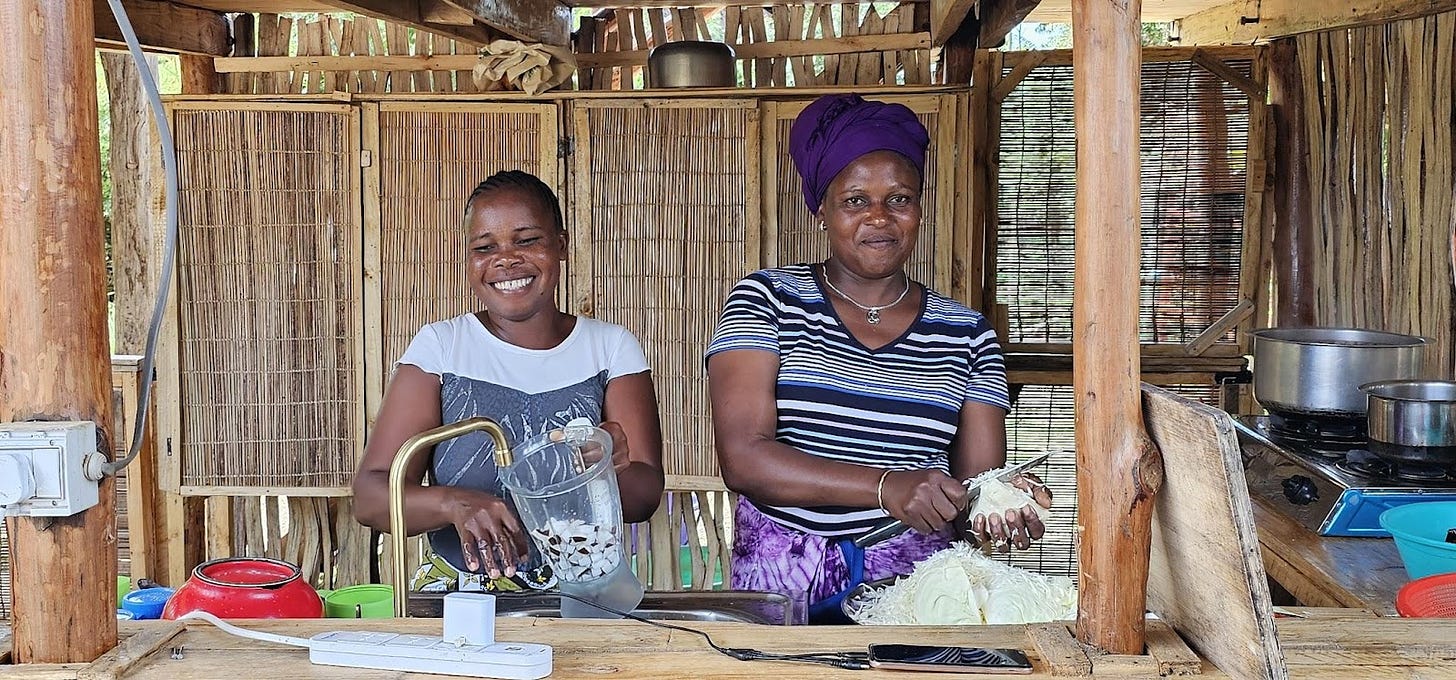At Grassroots Economics, stewardship is a way of being in relationship. Regeneration begins with care, presence, reciprocity, and interdependence. Stewardship expresses itself through shared labor, ritual, and repair; through local knowledge and research; through digital certificates of ecological care and trust. It is grounded in Commitment Pools, living agreements between communities and their ecologies, and made visible in watershed restoration and land restoration, cultural memory, and the design of non-extractive economies. To steward is to participate in life’s cycles, from seed to soil, story to ritual, rain to river, as a shared, ongoing commitment between people and place. Find below:
Commons by Design:
A Commons of Future Care
Local Regeneration
From Transaction to Trust
Certifications
Digital Certificates and Ecological Trust
Cartography, Design, and Local Ecological Research
Watershed Care and Hydrological Integrity
Cultural Ecology
Healing Cultural and Ecological Memory
Community Centers
Mnyumbuni Living Laboratory
Bioregional Hubs
Indigenous forest and wildlife conservation , our beloved kingfisher
A Commons of Future Care
Our approach is rooted in Commitment Pooling , living agreements between communities, and their ecologies. Each pool defines what matters, values what is offered, and sets the ground for reciprocity and non-extractive exchanges. They are commons of care for present and future generations.
Through this model, stewardship becomes visible as:
Shared labor on land and in watersheds.
Ritual tending of ancestral spaces.
Community led restoration of degraded ecosystems.
Tracking of fulfilled promises to both people and place health
Local Regeneration
Every community holds deep, embodied wisdom of how to live well with their environment. Our role is to amplify this memory, not overwrite it. Stewardship, then, is about supporting communities to:
Remember what connects us to our ecology and to each other
Pool what we already have such as time, tools, knowledge, care.
Hold power and wisdom collectively, not hierarchically.
Evolve in our changing times and use technology wisely
After a working day in Kiriba Village, Kilifi region
From Transaction to Trust
All contributions to ecosystem stewardship are recorded not as commodities, but as vouchers of promise. When one contributes, they seed a future commitment. This builds relational trust, allowing communities to adapt, rebalance, and regenerate together over time.
Stewardship is cultural, ecological, and economic at once.
Digital Certificates and Ecological Trust
Stewardship must be recognized. We create digital certificates of care: verifiable, traceable acknowledgments of ecological contribution. These are not speculative tokens, but memory-anchors: documentation of land healing, seed tending, reforestation, water conservation and more.
These certificates:
Are issued by the communities themselves.
Reflect fulfilled and ongoing ecological commitments.
Can be exchanged or pooled, but never extracted.
They align with warm data , alive and meaningful ways to reflect health in both the social and ecological soils
Look at more certificates on Soil and Food Production here : https://sarafu.network/pools/0xC4848263821FA02baB2181910A2eFb9CECb2c21C
And certificates on Reforestation here : https://sarafu.network/pools/0x6fB017C1924B4acBaaC1021A494E45ED7782106E
Cartography, Design, and Local Ecological Research
To steward ecosystems, we must understand them. Our approach includes:
Community-led cartography: mapping sacred sites, soil types, watersheds, and degraded zones.
Participatory landscape design: integrating agroecology, watershed protection, and traditional land-use knowledge.
Research on local ecosystems: documenting flora, fauna, climatic patterns, and historical land memory to inform care strategies.
These maps are tools of belonging, helping communities remember their relationship with place.
Watershed Care and Hydrological Integrity
Healthy watersheds are the veins of a thriving ecosystem. We prioritize watershed restoration as a keystone of regenerative work. This includes:
Spring and catchment restoration
Swale-building and infiltration structures
Vegetative buffers and erosion control
Reviving local knowledge of sacred water bodies
Healing Cultural and Ecological Memory
Stewardship is not separate from culture or economy, it is the weaving of both into ecology. It means:
Valuing the land as kin, not asset
Honoring ancestral knowledge in ritual and restoration
Building economies based on care, not extraction
A Dhome gathering, where communities celebrate and gather around the fire to discuss and plan next action days
Mnyumbuni: A Living Stewardship Site
“From gardens to kitchens”, our cooking team at Mnyumbuni kitchen
Mnyumbuni, located in Kiriba Village, in the region of Kilifi, in the Eastern Coast of Kenya, serves as a vibrant node within this broader vision. It is a living demonstration site where regeneration is practiced as a relationship, with the land, the waters, the stories, and the people.
Named after a tree and rooted in Mijikenda territory, Mnyumbuni hosts:
Native seed nurseries, syntropic agriculture and food forests
Land restoration, water harvesting and erosion control features
Biodiversity and beekeeping activities
Conservation of indigenous forests
Educational journeys on ecological repair and commitment pooling
As a sanctuary for learning by doing, Mnyumbuni helps transform abstract stewardship values into grounded, embodied practices. It is a bridge between ancestral knowledge, ecological design, and decentralized economies of care.
Photo of a working day at Mnyumbuni , applying water retention startegies and soil building
Bioregional Hubs
Mnyumbuni serves as one node in a growing constellation of Bioregional Hubs, community-anchored sites across Kenya where stewardship, circular economies, and cultural renewal come together. These hubs are connected through the Sarafu Network, a decentralized digital infrastructure that enables communities to pool commitments, trade beyond cash, and coordinate care across ecosystems. At the heart of this network lies the Kenya Rola Pool, a regenerative treasury seeded with collective promises, supporting communities as they attend their land and households needs, reforest hills, restore watersheds, regenerate soils, and revive ancestral commons. See Kenya Rola Pool here : https://sarafu.network/pools/0x48a953cA5cf5298bc6f6Af3C608351f537AAcb9e
Each hub maps its own priorities, yet all are bound by a shared intention: to honor life, amplify local wisdom, and regenerate the bioregions they call home.
Photo from one of the Kaya groups in Kinango active into forest restoration
Community Land Trusts & Ecosystem Stewardship Agreements
At Grassroots Economics, we believe land is not an asset to be owned and traded, but a living commons to be protected, shared, and cared for. Community Land Trusts provide a way for communities to hold land collectively, securing it from speculation and ensuring its use reflects the needs of both people and ecosystems.
Through Ecosystem Stewardship Agreements, communities enter into living covenants with the land: agreements shaped by local wisdom, ecological priorities, and shared responsibility to stewards our territories. These agreements define how land is tended, restored, and regenerated, from watershed protection and native species replanting, to sacred site care and economies based on nature functionality and the development of the social infrastructure needed for the local communities to operate collaboratively .
Together, Community Land Trusts and Stewardship Agreements ensure that land remains a home for life, not a commodity. They anchor Commitment Pools in real landscapes, creating frameworks for regeneration that endure across generations. Through the Sarafu Network, communities can record, share, and support these agreements, weaving care, a distributed coordination of resources, and ecological justice.
For more in-depth exploration on our work, explore Aude’s substack , our recently unboarded Ecosystem director at Grassroots Economics : https://audeperonne.substack.com
See you on the grounds!





